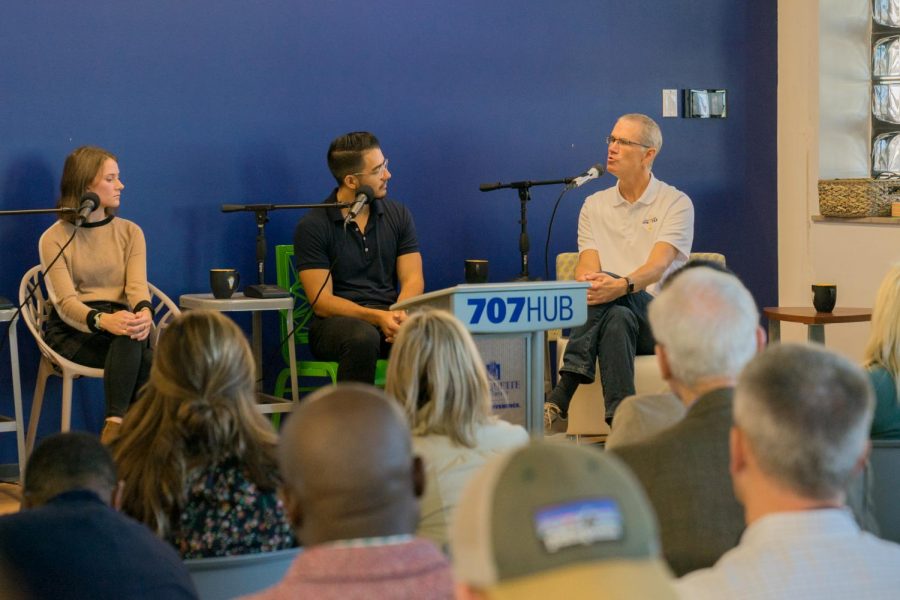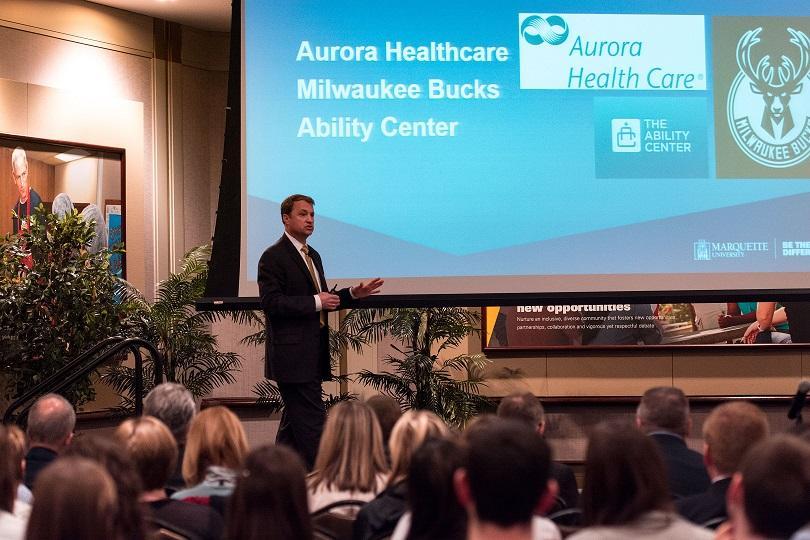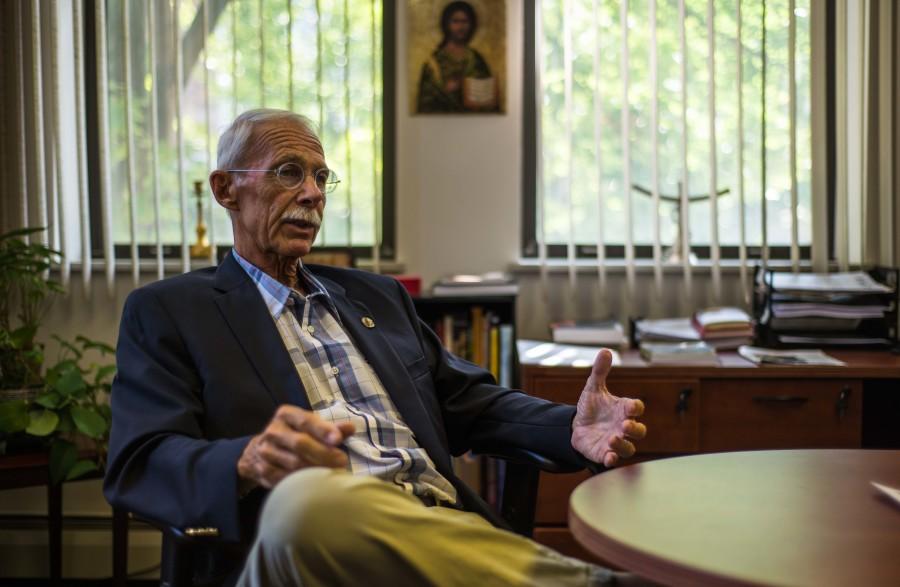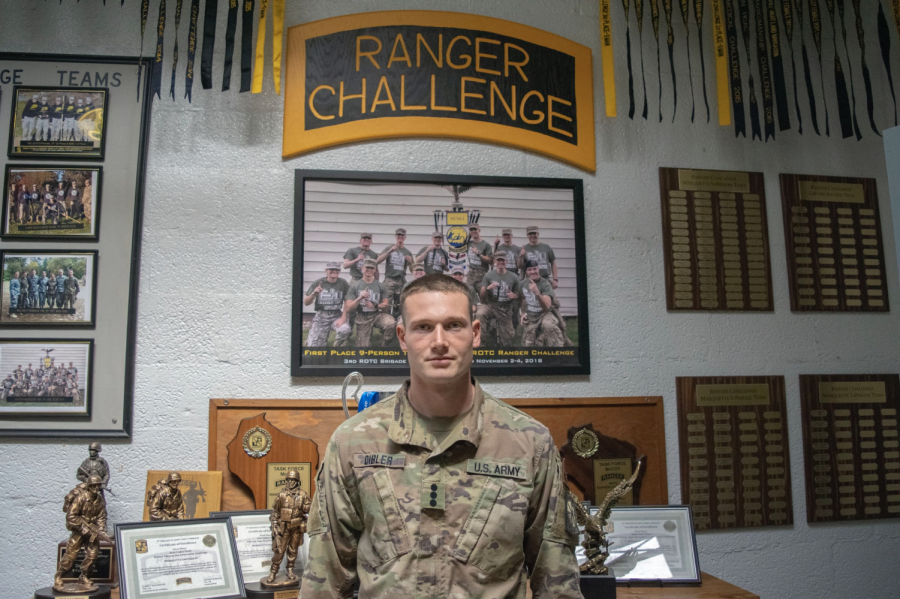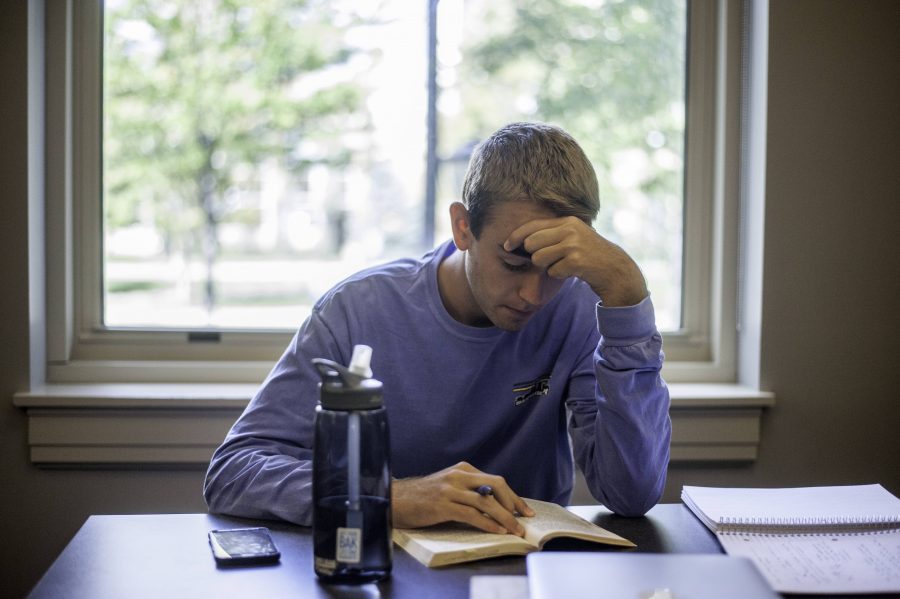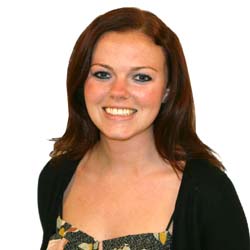Marquette alumnus Chuck Swoboda hosted a Jesuit Innovation event Friday that served as his first live podcast for his new show “Innovation on Tap.”
Swoboda, who Marquette has named the the first innovator-in-residence, holds a position that has allows him to share stories of innovators in different fields of study and create a podcast, according to the Milwaukee Business Journal.
“The podcast is something we launched a couple weeks ago,” Swoboda said. “We have five episodes out, but this was the first live event we have ever done.”According to the Marquette website, the podcast is about “stories of innovators and thought leaders across a wide variety of fields who have seen first-hand what it takes to challenge the status quo.”
Back in April, Swoboda and his wife Karen donated $2.5 million to the university with $1 million of it going to Innovation Alley, a program meant “to reimagine education both in the classroom and in our workplaces and to create leaders that will embrace a new mindset, welcome change and transformation, and create environments for taking risks,” according to the program’s website.
“The last 10 years I spent almost all my time doing leadership development,” Swoboda said. “When I got a chance to re-engage at Marquette, I realized that I could do it with college students, and the impact is actually greater. The younger you can engage someone in leadership, not only the more successful you can make them, but the bigger impact you can make.”
Erin Wells, a senior in the College of Engineering, believes that it is important to have events and programs similar to Innovation Ally and Innovation On Tap because it brings young innovators together and promotes new learning ideas.
“It is important to have an event like this to bring people together and to initiate thought, ideas and curiosity,” Wells said. “More importantly, to address issues in society that we often do not want to talk about, but that is where innovation and change happens. It is the first step in ‘being the difference’ as Marquette claims to do by hosting events like this.”
At the event, Swoboda said how Innovation Alley correlates with Jesuit education at Marquette.
“If you get into the Jesuit philosophy, whether it be the basic idea of what Jesuit (education) is, innovation is about doing something you have never done before,” Swoboda said. “Jesuit education is teaching about ‘how’ to think instead of ‘what’ to think and in the business of creating a new ‘what,’ it is really important to learn about a different way to think about the ‘how.'”
Helping college students rewire their thinking process and creating better habits is something Swoboda said he believes will lead to more change and success in the community.
“Most students wait too long,” Swoboda said. “They do not realize that there is more chance to network while you are here, and you just got to take advantage of it. Do not wait.”
Jarrett Burgess, a senior in the College of Engineering, spoke about some of the challenges that come with promoting change and innovation to the community.
“Not all people are going to change because everyone has their own preset ways of doing things and how they expect it to be done,” Burgess said. “(It) obviously creates some problems when you come up with something new and it might be for the better, but they are not willing to hear it because they are always like ‘This is the way we do it and always have done.'”
No matter what problems may occur, Swoboda said he believes that exposure and experience are key to students creating new ideas and challenging conventional thoughts.
“You are going to be asked when you graduate, ‘What do you want to go do?’ and you have to figure out what that job is,” Swoboda said. “If you find an internship while you are here, you are going to test drive what the real world works like, and you are going to be way more informed about guiding your career than if you just go out there and take the first job that comes your way.”
Exposure is not the only concept that promotes success, according to Wells.
Sharing and utilizing one’s talent to the fullest potential is also crucial to making an impact on the community.
“Each person has their own talents, and each of those talents need to be utilized, explored and cultivated because they are part of the solution,” Wells said. “Big events like this (are) something everyone should go to in order to find a way to discuss issues and problems that may face them.”

